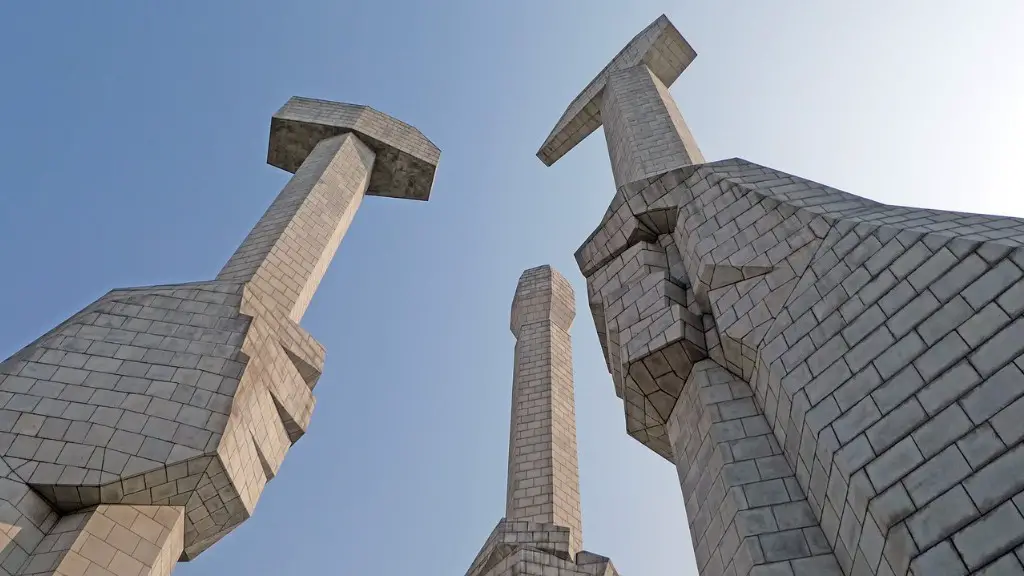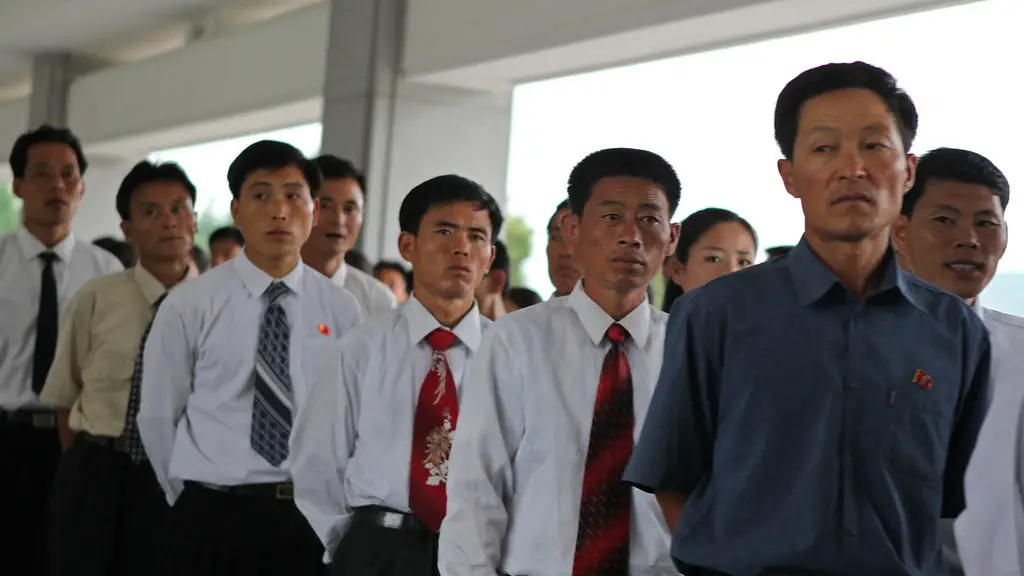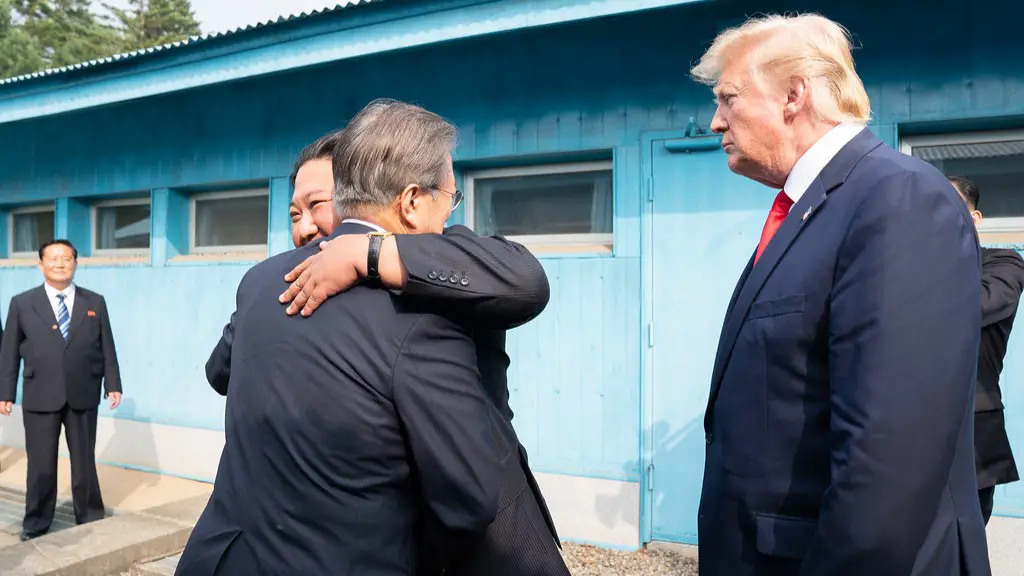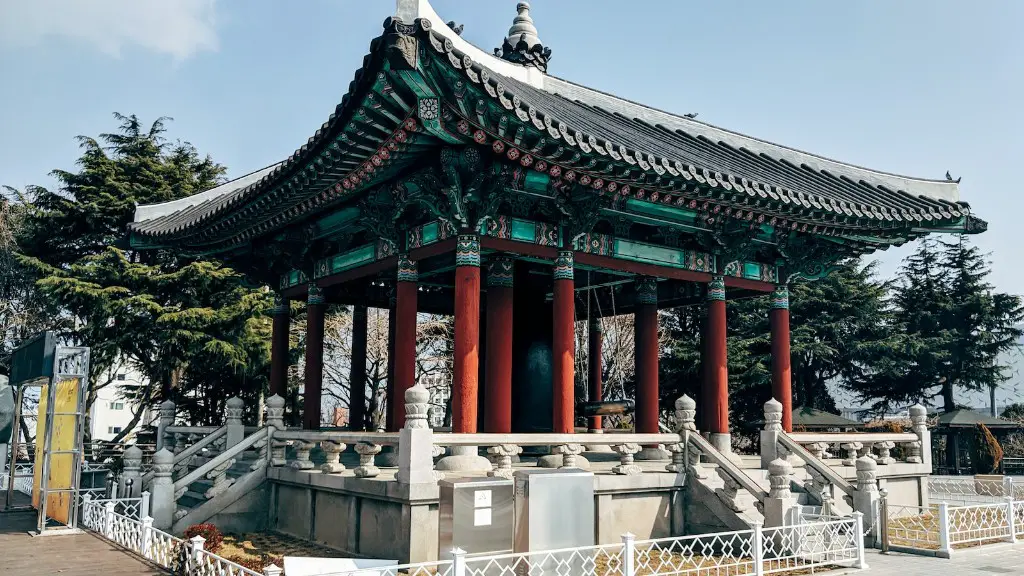How North Korea Survive Sanctions
The United Nations (UN) has imposed several rounds of sanctions on North Korea in an effort to pressure the country into making peace with the international community. Ever since the first sanctions were imposed in 2006, the North Korean government has been able to circumvent the sanctions and continuously maintain its independence while still receiving aid from China and Russia. How is North Korea able to survive such stringent sanctions?
According to experts, the North Korean government is able to do this by using a combination of various techniques. Firstly, North Korea has a well-established system of state-run businesses that are able to generate income for the government, despite the sanctions. These businesses, in particular the trading companies, are able to make deals with other countries, such as China and Russia, to receive aid and resources.
Furthermore, North Korea has a well-constructed black market that operates within the region. This market is primarily for the sale of luxury products and is used by the North Korean elite to purchase items that may not be available due to the sanctions. This enables North Korea to earn money and sustain life in the country despite the sanctions.
In addition to this, North Korea has an extensive network of underground tunnels and bunkers that allow it to send goods, equipment and personnel across borders. This has helped North Korea to import goods while avoiding detection by the international community. This is further enhanced by North Korea’s use of global banking networks, which allows them to make transactions and transfer money without detection.
Experts believe that North Korea’s ability to survive sanctions can also be attributed to its large army and its disciplined population. The North Korean army is a formidable force and acts as a deterrent against any hostile action from the international community. Furthermore, the North Korean people have been indoctrinated to believe in the government’s cause and are willing to do whatever it takes to ensure the survival of the nation.
Lastly, North Korea’s strong ties with China and Russia can also be seen as a factor. China and Russia’s support for North Korea has enabled it to remain independent and continue to obtai resources amidst sanctions. China and Russia’s economic and diplomatic assistance have enabled North Korea to safeguard its interests, despite economic sanctions.
The Impact of Sanctions on North Korea
The sanctions imposed on North Korea have had a negative impact on its economy and population. The restrictions on trade and financial transactions have led to an economic downturn and rising unemployment. Furthermore, the general population has experienced food shortages and had limited access to energy and other resources. The impact of sanctions on North Korea have also caused a wide range of other economic and social issues, such as poverty, hunger and malnourishment.
The North Korean government has implemented policies in response to the sanctions, such as an austerity program, whereby the government has limited or eliminated subsidies on products and services, or closed down hospitals or universities. Additionally, the government has restricted agricultural production and the amount of grain that North Korean citizens can purchase, leading to increased famine in some parts of the country.
Despite the negative impact of sanctions, the North Korean government has been able to maintain a sense of stability in the country. According to experts, North Korea remains a strong nation because of its political and economic resilience. The government has responded to the sanctions by adapting and making adjustments to its policies and economy. Moreover, the country’s isolation from international organizations and its reluctance to bow down to pressure have enabled it to remain independent and stable.
North Korean-US Relations
The relationship between North Korea and the United States has been strained for many years, mainly due to North Korea’s nuclear and missile tests. In 2017, the US President introduced additional sanctions on North Korea, in an effort to force the country to abandon its nuclear weapons program. These sanctions have made it increasingly difficult for North Korea to receive foreign aid and receive investments.
Despite the US sanctions, North Korea and the US have made progress in recent years. In 2018, North Korea’s leader, Kim Jong Un, and US President Donald Trump held a historic summit, which led to a reduction in tensions between the two countries. Additionally, North Korea and the US have started to engage in diplomatic talks, in an effort to reach a peaceful resolution to the conflict.
However, despite this progress, North Korea and the US still remain far apart and the future of their relationship is uncertain. The US government has made it clear that it will not lift the sanctions until North Korea abandons its nuclear weapons program, which North Korea continues to reject.
Inter-Korean Relations
Inter-Korean relations have also been strained for many years. In 2018, South Korea and North Korea held a historic summit, where leaders from both countries signed an agreement for peace and reconciliation. Under this agreement, the two countries aimed to reduce military tensions and build trust through various initiatives.
Nevertheless, many hurdles still remain in the path of inter-Korean reconciliation. Despite the fact that South Korea has officially ended its war with North Korea, the two countries remain in a state of armistice, where North Korea and South Korea are still technically at war. Furthermore, the North Korean government continues to view the South Korean government as an adversary and maintains strict control over its border.
The future of inter-Korean relations is uncertain. Although progress has been made, there is still a long way to go before North Korea and South Korea can fully reconcile and end the division between the two countries.
International Organizations and Sanctions
Various international organizations have been pushing for the removal of economic sanctions on North Korea. The UN has urged the US government to lift the sanctions, arguing that it is a necessary step for the peace process. Furthermore, human rights organizations have argued that the sanctions are harming the most vulnerable in North Korean society, including children and the elderly.
The international community has also called for a relaxation of sanctions on North Korea in order to facilitate an economic recovery and provide humanitarian support to the people of North Korea. In 2019, the UN passed a resolution calling for the lifting of sanctions on North Korea, in order to allow the country to access essential medical supplies and food. However, this resolution has not been implemented due to US opposition.
Ultimately, the international community is pushing for the US government to lift the sanctions in order to speed up the peace process between North Korea and the US, as well as to relieve the suffering of the North Korean people.
Conclusion
North Korea has been able to survive the international sanctions imposed on it for several years. The North Korean government has used a combination of techniques, such as generating income through businesses and cooperating with China and Russia, to circumvent the sanctions and sustain life in the country. Moreover, while the sanctions have had a negative impact on North Korea and its people, the North Korean government remains determined and resilient.
Despite the progress made in US-North Korea relations, it remains uncertain if the sanctions will be lifted any time soon. The US government has been adamant on its stance, insisting that the sanctions will only be lifted if North Korea abandons its nuclear weapons program. For now, the North Korean people continue to suffer the effects of the sanctions, while the international community pushes for their removal.





